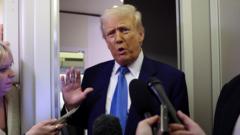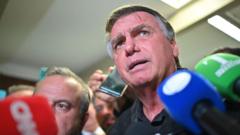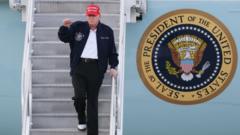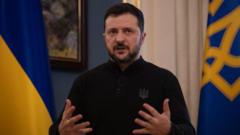**Trump's request to the Supreme Court comes in the wake of significant workforce reductions and ongoing controversies regarding executive powers.**
**Trump Seeks Supreme Court's Intervention Over Independent Agency Dismissal**
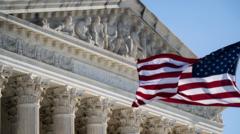
**Trump Seeks Supreme Court's Intervention Over Independent Agency Dismissal**
**Emergency appeal filed after firing of ethics agency head raises presidential authority questions**
In a bold legal maneuver, President Donald Trump has formally requested the US Supreme Court to weigh in on his authority to dismiss the head of an independent ethics agency responsible for safeguarding whistleblower federal employees. Hampton Dellinger, who was terminated via a succinct email earlier this month, has sued the administration, asserting that his sudden removal contravenes established laws designed to protect leaders of independent agencies against arbitrary dismissal—except in clearly defined instances of neglect, malfeasance, or inefficiency.
This unfolding case marks potentially the first significant challenge regarding the breadth of Trump's executive power to reach the highest court. Following Dellinger’s firing, a federal judge in Washington, DC, temporarily allowed him to remain in his role while legal proceedings are examined. However, a recent ruling from the US Court of Appeals denied the Trump administration's attempt to overturn the lower court's decision.
Sarah M. Harris, acting solicitor general, articulated this intricate legal situation, emphasizing in her filing that historical precedent does not support court interventions that mandate the president to retain agency heads against his judgement. This case joins a series of ongoing legal obstacles surrounding Trump's executive orders, particularly those linked to immigration, gender rights, and fiscal policies.
The incident surrounding Dellinger's termination is contextualized within Trump's broader initiative to reshape the federal workforce, which has included the firing of over 9,500 employees across multiple federal agencies. Reports reveal that recently, employees in health-related agencies received notifications of their termination due to performance issues and misalignment with agency needs. Furthermore, around 75,000 additional employees accepted voluntary buyout offers as part of Trump’s ongoing strategy to reduce government labor costs, spearheaded by a task force known as Doge, led by business tycoon Elon Musk.
As the legal proceedings continue, the implications of Trump's appeal could reverberate broadly across the federal landscape, challenging the dynamics of presidential powers amidst a politically charged environment.
This unfolding case marks potentially the first significant challenge regarding the breadth of Trump's executive power to reach the highest court. Following Dellinger’s firing, a federal judge in Washington, DC, temporarily allowed him to remain in his role while legal proceedings are examined. However, a recent ruling from the US Court of Appeals denied the Trump administration's attempt to overturn the lower court's decision.
Sarah M. Harris, acting solicitor general, articulated this intricate legal situation, emphasizing in her filing that historical precedent does not support court interventions that mandate the president to retain agency heads against his judgement. This case joins a series of ongoing legal obstacles surrounding Trump's executive orders, particularly those linked to immigration, gender rights, and fiscal policies.
The incident surrounding Dellinger's termination is contextualized within Trump's broader initiative to reshape the federal workforce, which has included the firing of over 9,500 employees across multiple federal agencies. Reports reveal that recently, employees in health-related agencies received notifications of their termination due to performance issues and misalignment with agency needs. Furthermore, around 75,000 additional employees accepted voluntary buyout offers as part of Trump’s ongoing strategy to reduce government labor costs, spearheaded by a task force known as Doge, led by business tycoon Elon Musk.
As the legal proceedings continue, the implications of Trump's appeal could reverberate broadly across the federal landscape, challenging the dynamics of presidential powers amidst a politically charged environment.









